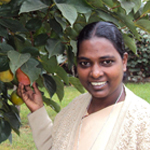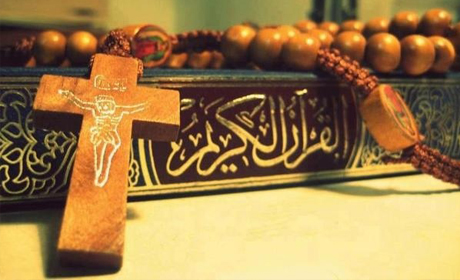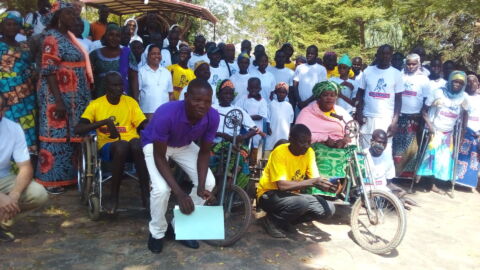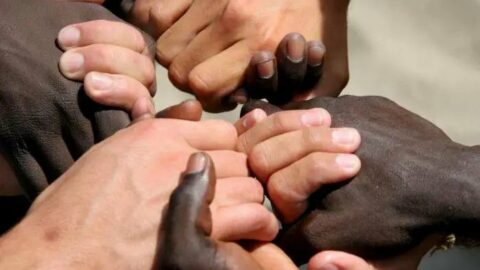Islam and Christianity have had a mixed relationship over the centuries. Often these two traditions have taken an exclusivist position portraying the other in negative terms. Increasingly in the last few decades, there have been calls for dialogue. It flows from our fidelity to God and supposes we know how to recognize God by faith, and to witness to him by word and deed in a world ever more secularized and at times even indifferent to the God who is the creator and who wants us all to have a life in its fullness. I had the opportunity to study in Karunapuram during the philosophical course on interreligious dialogue which aimed at exploring the paths towards a hermeneutical approach to the relationships between different religions and the intense course on Quran in the Hentry Martyn Institute, Hyderabad and my interaction with the Islamic women who frequent St. Mary’s basilica in Bangalore have enriched my faith. I wish to emphasis merely on three basic beliefs that we share in common. Let’s dialogue with the aspects that unite us rather than those that divide us.
- The profession of Faith in the monotheistic God
The religions of Christianity and Islam worship in one God, denying the existence of other gods. “Yahweh” simply refer to Him as God in Arabic, Islam’s founding language, “Allah” means “The God”. We adore the one God, living and subsisting in Himself; merciful and all- powerful, the Creator of heaven and earth, who has spoken to people; The Quran declares: “Say: He, Allah, is one. Allah, the eternal. Neither has he begotten, nor is he begotten. And no one is his equal” (112).we take pains to submit wholeheartedly to even His inscrutable decrees, just as Abraham, with whom the faith of Islam and Christian take pleasure in linking itself, submitted to God. Though Islam does not acknowledge Jesus as God, they revere Him as a prophet.
- The extraordinary value of Mary
Only one surah (or chapter) in the entire Quran is named after a woman Surah: 19 and it is named after Mary. In fact, Mary is the only woman who is named in the Quran! This has impressed some Islamic authorities (though admittedly a small minority) to consider Mary a nabiyya or prophetess. The majority of Muslims consider her to be exceptionally pious and of the highest spiritual rank among women. Quran 3:42 says, “O Mary, indeed Allah has chosen you and purified you and chosen you above the women of the worlds”, to give her the good tidings of a pure son, Prophet Jesus.
- The three pillars of lent present in Quran
a) Daily prayers (salat)
Muslims are expected to pray five times a day. This does not mean that they need to attend a mosque to pray; rather, the salat, or the daily prayer, should be recited five times a day. Muslims can pray anywhere; however, they are meant to pray towards Mecca. The faithful pray by bowing several times while standing and then kneeling and touching the ground or prayer mat with their foreheads, as a symbol of their reverence and submission to Allah. On Friday, many Muslims attend a mosque nearby to pray and to listen to a sermon (khutba).
b) Alms-giving (zakat)
The giving of alms is the third pillar. Although not defined in the Quran, Muslims believe that they are meant to share their wealth with those less fortunate in their community of believers.
c) Fasting during Ramadan (saum)
During the holy month of Ramadan, the ninth month in the Islamic calendar, Muslims are expected to fast from dawn to dusk. While there are exceptions made for the sick, elderly, and pregnant, all are expected to refrain from eating and drinking during daylight hours.
Among the important convictions which we share, both Christianity and Islam stress the dignity of every human person as having been created by God for a special purpose. This leads us to uphold the value of human life at all its stages, and to give support to the family as the essential unit of society. It is a great joy for me to encounter Muslim brothers and their families in the charity and in the listening centers at Rossano in Calabria. Encountering them in my daily life has increased my love for God and hope in humanity.
 Sr. Shyla Rayappan is an Indian Missionary Sister of the Immaculate. She holds a Bachelor of Arts (BA) in English Literature and Economics, a Bachelor of Philosophy (BPH), a Bachelor of Theology (BTH), and a Master of Science (MSc) in Psychology with a specialization in group and personal counseling. Currently, she lives in southern Italy in the diocese of Rossano-Cariati. She is part of the pastoral youth ministry team in the Diocese. She extends her help to the “House of Hope,” where she encounters many Muslim brothers and sisters.
Sr. Shyla Rayappan is an Indian Missionary Sister of the Immaculate. She holds a Bachelor of Arts (BA) in English Literature and Economics, a Bachelor of Philosophy (BPH), a Bachelor of Theology (BTH), and a Master of Science (MSc) in Psychology with a specialization in group and personal counseling. Currently, she lives in southern Italy in the diocese of Rossano-Cariati. She is part of the pastoral youth ministry team in the Diocese. She extends her help to the “House of Hope,” where she encounters many Muslim brothers and sisters.













